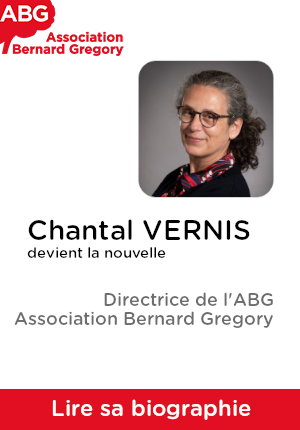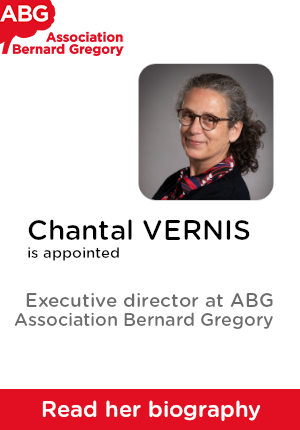Making the most out of PhDs - An interview with Camille Delebecque, Synthetic Biologist and International Serial Entrepreneur
This week, we catch up with Camille Delebecque to discuss his PhD, his experience with research and academia in general. Camille is a very successful entrepreneur and is the founder of the first Synthetic Biology consulting company, Synbio Consulting. Camille made a number of unusual choices during his curriculum and we were really curious to ask him about these and more generally his experience with the academic world and advise. Here is only a short testimony; if you want to reach out to him you can find him on twitter.
What guided your choices while you navigated the complex French-American academic system?
I would say I was constantly seeking international environments that would provide both a lively ecosystem of like-minded people and quality highly interdisciplinary research and education.
I had a fairly clear idea of what I wanted or not as a student. I was captivated by research, the idea of pushing back the boundaries of knowledge, and about how innovations could get out of labs for the greater good. I decided to pursue a bioengineering masters from AgroParisTech, the most famous French « Grande Ecole » to offer such a degree. I was very interested in life sciences but wanted to stay open to other things, and this is precisely what this institute enabled me to do. I had the opportunity to have an « à la carte » education and study management and entrepreneurship besides bioengineering. I also had the opportunity to do an internship at UNESCO working on fostering biotech in the developing world. After my bioengineering degree I wanted to learn more about molecular biology and really get my hand dirty with research and bench work, so I applied for and entered a research master called “Interdisciplinary Approaches to Life Science”. It was a blast, and it’s around this time that I discovered synthetic biology. It changed everything.
Can you give us a primer about Synthetic Biology?
Synthetic Biology is the design and construction of new biological devices and systems for useful purposes. This is quite a broad definition but the idea is that our current understanding of biology has come to a point where we actually envision engineering the living in a controllable and modular way to get cells (usually microbes) to produce interesting molecules for us (biofuels, drugs, etc…). Biology has the advantage over chemistry to work at normal temperature and pressure ranges, making it much energy efficient. A big chunk of the synthetic biology field is looking at replacing current petrochemicals with greener alternatives engineering biology.
So, after your engineering degree you decided to pursue a PhD but you already knew you would not stay in academia strictly speaking. Isn’t that unusual?
Yes, doing a PhD after an engineering degree is pretty unusual in France, and doing a PhD with the end goal of not becoming a professor is as well. I actually also had a PhD in Management of Innovation lined up, but before working at the interface with research, I decided to first develop and extend my expertise in Synthetic Biology. So many business people have big words for the academic world but actually never really experienced it. I also felt a deep technical understanding of the field was very important.
There still very much is a perpetuating stigma not only in France but also in the US about pursuing a PhD degree with the end goal of working “outside” academia. But if you look at the numbers from the National Science Foundation (Science and Engineering Indicators 2012), only 14% of life science PhDs are in academia on the tenure track and only 7% are actually tenured while over 50% of PhDs work outside of academia. There are still much learning to do and many changes to be made to PhD programs to get them to prepare people for the real world.
Tell us more about your PhD, I believe you built quite an unusual setup
Well, I actually did my master thesis research at Harvard Medical School working on engineering photosynthetic bacteria to produce biofuel but also had a second lab in Paris. I wanted to keep the same setup during my PhD, making the most of those two worlds. I joined the “Frontiers of Life Sciences” graduate school at the Center for Research and Interdisciplinarity in Paris and built my PhD around a joint supervision set-up with the same labs.
My PhD research was at the crossroad between Synthetic Biology and Nanotechnology. We built artificial “organelles” (small specialized compartments within cells) to increase the yields of biofuel production in bacteria. The approach we came up with was actually quite novel and made a fair amount of noise. It was published in Science, made the cover of the edition and got some press.
Very interesting. I believe you did a fair amount of things on the side of your PhD as well?
Yes, this is actually quite an important point. PhD programs are not made to help you discover the wealth of opportunities out there, and are still very much geared towards tenure track. Everyone is super busy and has to jungle with many issues while pursuing a PhD, but I strongly believe it is important to get out there and get involved with things outside the lab. During my PhD I founded a first startup, was a director of external communication for the Biotech club at Harvard, did intellectual property consulting for the Technology Transfer Office and took a summer off to work in a Venture Capital firm specializing in the Life Sciences.
Tell us more about Synbio Consulting
At the end of my PhD, there was still no consulting company specializing in Synthetic Biology. Being a booming, highly interdisciplinary and applied field with a very specific culture coming from engineering and the software movement, there really was a need for a specialized consultancy. I bootcamped Synbio Consulting right after my PhD, while working on a pilot project in Nepal around using Synthetic Biology as a tool to foster responsible development. Everything just happened quite naturally. We now work with a number of US and Europe based organizations across the private, public and social sectors on projects ranging from assisting with R&D all the way to business development and corporate strategies. Synthetic Biology is also a wonderful tool to better science education and sprout startup ecosystems in the developing world and we still closely work on these questions. I was also recently selected as a Synthetic Biology expert for the European Commission, which now also makes me a Eurocrat I guess? Anyways, it’s quite an exciting adventure so far.
Catch up with Camille over at Synbio Consulting, on his personal website or on twitter.
Get ABG’s monthly newsletters including news, job offers, grants & fellowships and a selection of relevant events…
Discover our members
 SUEZ
SUEZ  Aérocentre, Pôle d'excellence régional
Aérocentre, Pôle d'excellence régional  ADEME
ADEME  Groupe AFNOR - Association française de normalisation
Groupe AFNOR - Association française de normalisation  ONERA - The French Aerospace Lab
ONERA - The French Aerospace Lab  PhDOOC
PhDOOC  MabDesign
MabDesign  CESI
CESI  MabDesign
MabDesign  TotalEnergies
TotalEnergies  CASDEN
CASDEN  Ifremer
Ifremer  ASNR - Autorité de sûreté nucléaire et de radioprotection - Siège
ASNR - Autorité de sûreté nucléaire et de radioprotection - Siège  Nokia Bell Labs France
Nokia Bell Labs France  Généthon
Généthon  Laboratoire National de Métrologie et d'Essais - LNE
Laboratoire National de Métrologie et d'Essais - LNE  ANRT
ANRT  Institut Sup'biotech de Paris
Institut Sup'biotech de Paris  Tecknowmetrix
Tecknowmetrix








